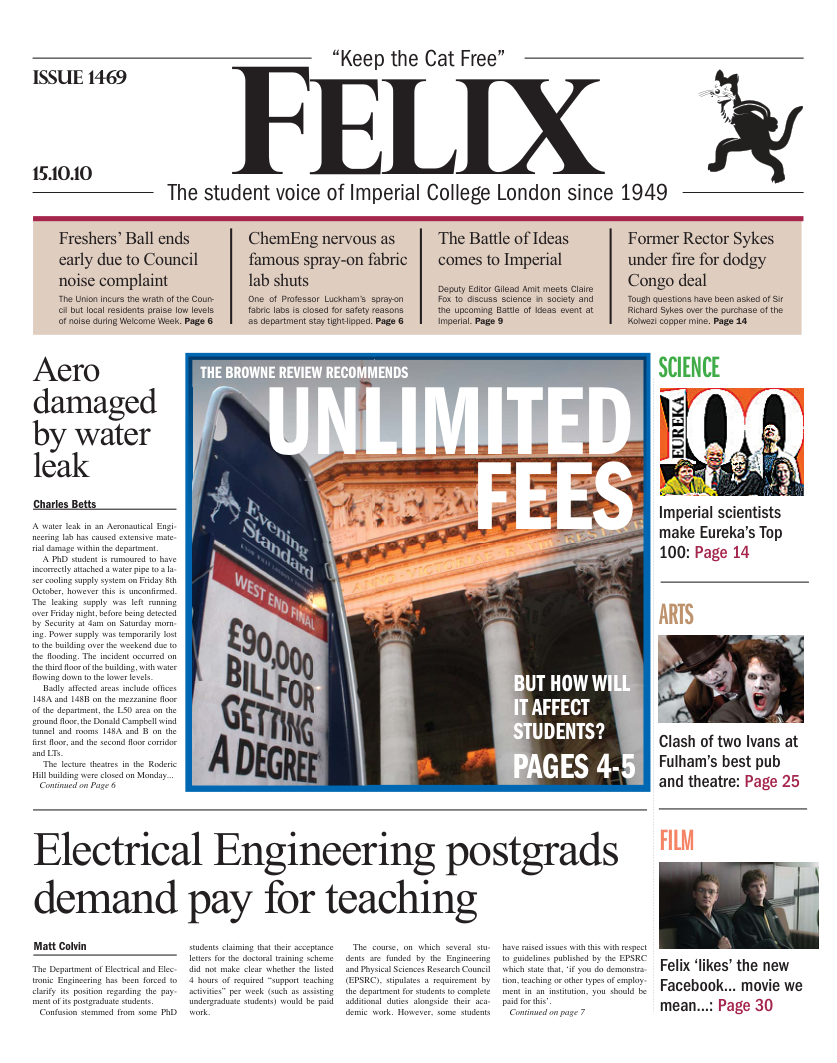Reject higher fees
‘Crippling’ levels of debt are not the way forward for a sustainable higher education system says Aaron Porter in a Felix op-ed

The Browne review into higher education funding and student finance has recommended not only a doubling of tuition fees, but made provisions for a free market in tuition fees.
Such extreme proposals had looked increasingly likely as leaks built up over the last few weeks – but, in many ways, this was always the likely outcome of a review led by the former chief executive of BP, with the rest of the panel made up of three business people, two vice chancellors and a university employee.
The question now turns to how the Government will respond to the review’s findings. The make-up of the Government should be in our favour – the Liberal Democrat party have a long-stated belief that tuition fees are regressive and unfair, and have indeed argued that fees should be entirely abolished. Moreover, every single Liberal Democrat MP signed an NUS pledge prior to the election to vote against any rise in tuition fees. It will not be possible to get a rise in the tuition fee cap passed through parliament if the Liberal Democrats stick to this pledge – and so all eyes will be on them over the coming weeks and months.
We will not accept any MPs breaking the pledge that they made to students and their families during the election campaign – you simply can’t say one thing one month, only to do the exact opposite once you are in power.
But we must also strongly make the case against any rise in tuition fees to all MPs – they are a regressive model which, as Secretary of State Vince Cable argued this summer, act as a higher education “poll tax”. Higher fees would clearly be far worse still, leaving graduates with crippling levels of debt and undoubtedly deterring applicants from poorer backgrounds.
Politicians will argue that tuition fees have to rise given the massive cuts the higher education sector will suffer. This is completely unacceptable – why should students be forced to take on yet more debt simply to lessen the damage of expected government cuts? Students did not cause the recession – it is simply not fair to ask them to pay for the mistakes of others.
What is more, universities made no case as to how they would use higher tuition fees to improve the student experience, let alone accounted for the extra income they have received from students’ pockets since fees were tripled just four years ago. Student satisfaction has not improved at all in that period. Vice chancellors, on an average salary £219,000, must be disabused of the notion that students and their families would tolerate paying more for less, or indeed to foot the bill for others’ excesses.
The Coalition Government has a golden opportunity to implement a fairer, more sustainable alternative to higher tuition fees. If they fail to do so, students and their families, already feeling the pinch, will not forgive or forget.




